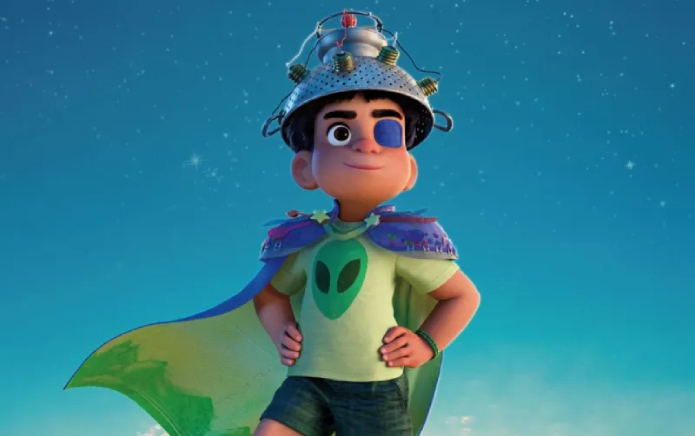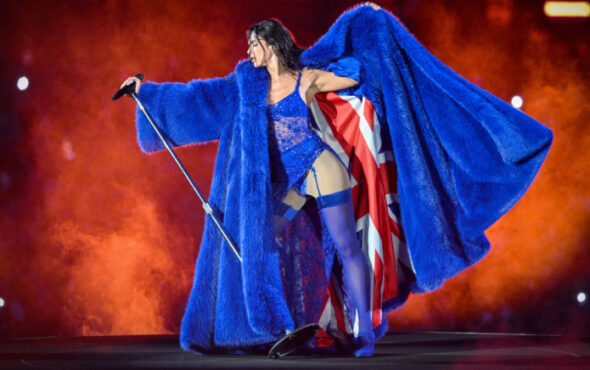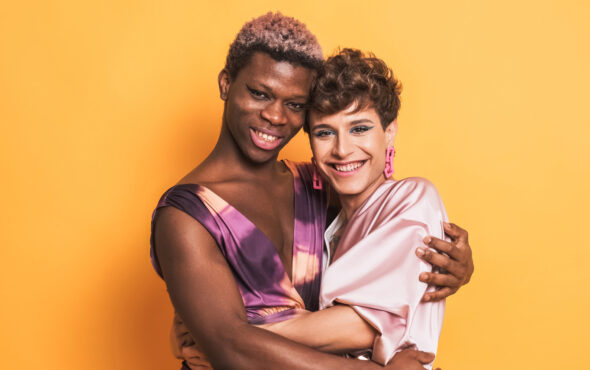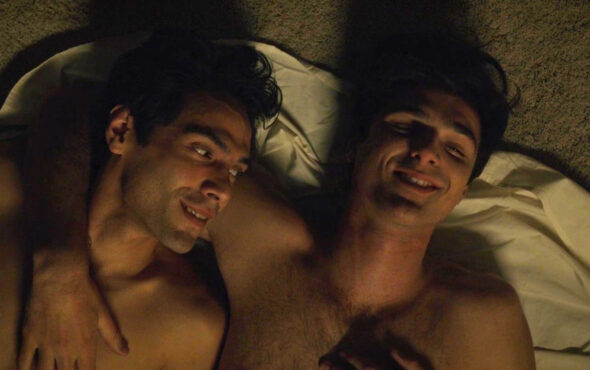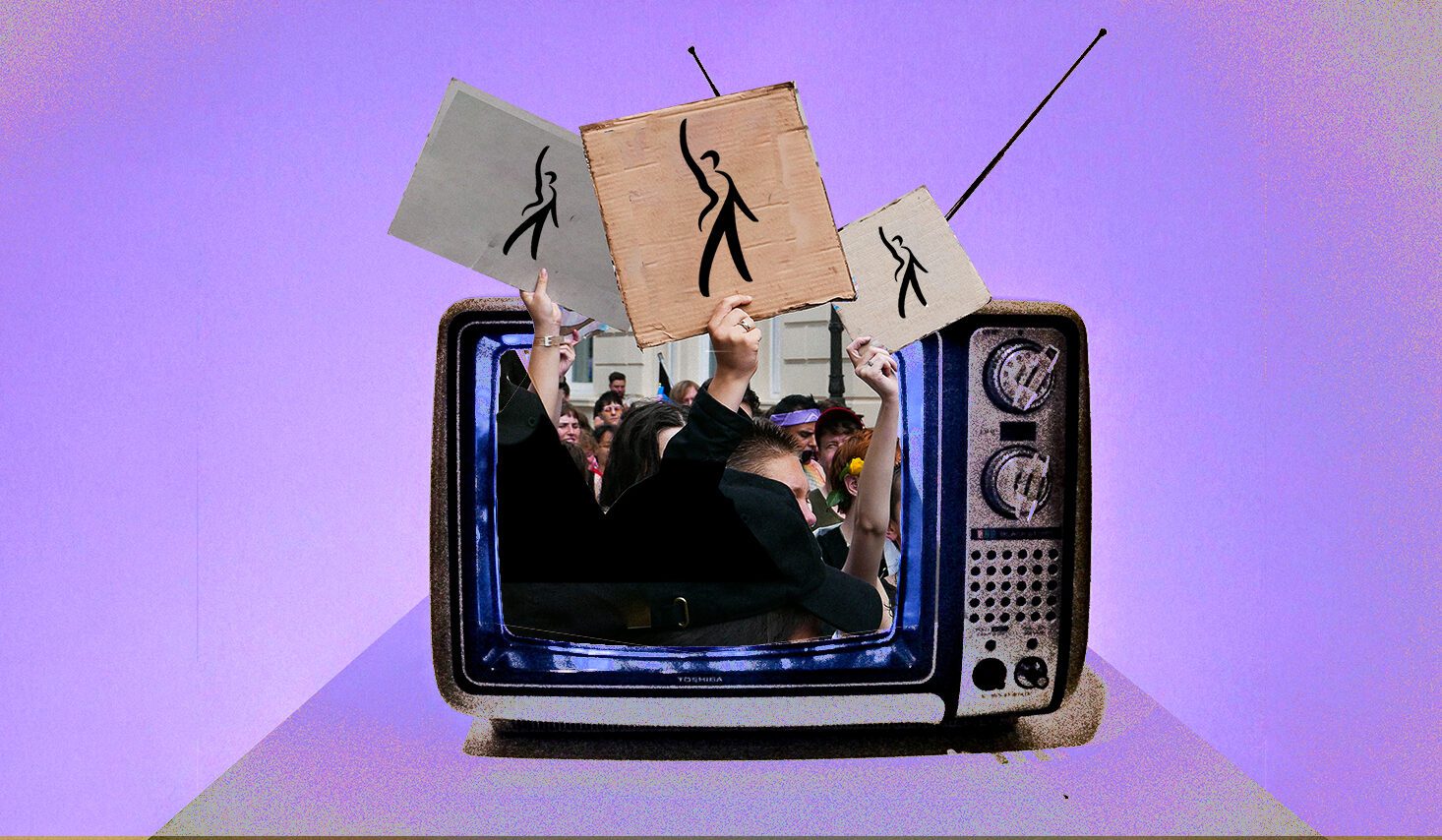
With box office records being smashed across the world, cinema has truly become a space of refuge and relaxation this summer. But, behind the scenes, things aren’t looking quite as restful. This year we’ve seen tensions rise as some of the industry’s biggest stars have called for increased pay, royalties and rights are creatives in film and TV. As productions grind to a halt and the WGA (Writers Guild of America) and SAG-AFTRA (Screen Actors Guild and American Federation of Television and Radio Artists) strikes charge on, it’s time to consider what this means for LGBTQIA+ media.
So, your beloved binge-watchable series has taken an unplanned break. Or, that queer movie you were psyched about checking out with mates has been, frustratingly, pushed back — well, now what? The truth is, it’s hard to see LGBTQIA+ media under threat (again) after we hit new heights in visibility, according to GLAAD’s new study. But, now, as SAG-AFTRA President Fran Drescher says, that on-screen progress is at risk due to the stubbornness of studios willing to reach fair deals.
As our go-to pop culture new releases are starting to run thin, we’ve unpacked how the strikes are affecting the community, queer creatives and how audiences can source representative and ethical on-screen queer content right now.
What’s all the noise about — why are the WGA and SAG-AFTRA striking over?
Many members of the SAG, AFTRA and the WGA exist in imperative, behind the screen roles. From voiceover artists to stunt coordinators and intimacy coordinators, many of these positions are invaluable to the creative sector.
However, the value of these people remains unacknowledged. The financial model that many creatives work within is outdated, meaning the invention and rollout of modernised streamlining platforms (Netflix, Amazon, Disney+) don’t align with the way workers were paid previously when their shows were simply broadcast across TV networks.
Incompatible systems and failure to update in-house industry infrastructure has meant a poor payout of residuals. Actors have been in the limelight for the unfair paying conditions around royalties and pay-post a show’s core run. Income made during re-runs or broadcasting transfers has been staggeringly low. For example, Glee premiered in the US in 2009. The hit show later premiered to over 1.1 million viewers in the UK on E4. The series later moved to Sky 1 and the cast would receive residuals based on the syndication of the show to another broadcaster in another country as well as network movement.
The introduction of streaming sites has resulted in actors’ residual payments vastly decreasing. This is in part due to the fact that when a show lands on a streaming service, residual payments that may have accrued due to reruns on TV are significantly lower because the show now lives within its own online streaming platform.
You might be wondering how this has a knock-on for queer representation. Well, as LGBTQIA+ media is facing bouts of cancellations and limiting inclusion on shows, financial compensation impacts the feasibility of actors being able to stick around in an industry that doesn’t pay them enough.
How can we still find queer comfort on-screen?
Film and TV are at the heart of so many LGBTQIA+ people’s experiences. Storytelling, representation and escapism are crucial to so many of us. If you ask us, it’s no wonder that queer people are worried about the fate of their favourite shows.
Stranger Things and Euphoria are rumoured to have lengthy delays, as well as Jon M. Chu’s hotly anticipated Wicked, with cast members Ariana Grande and Cynthia Erivo, was so close to wrapping up but will, inevitably, face setbacks. Other LGBTQIA+ favourites such as Neil Patrick-Harris’ Uncoupled, Apple TV+ comedy Loot starring Michaela Jaé Rodriguez, Hacks and many, many are also in limbo.
Yes, we wholeheartedly support the striking workers. But, it’s true, many of us still want to fill the LGBTQIA+ shaped hole in our lives. So, do not despair, we’ve got some good news.
With SAG-AFTRA granting approval to 39 independent productions to shoot during the strike, an upcoming queer behemoth is back in production. Mother Mary, starring Anne Hathaway and Michaela Coel, sees writer and director David Lowery working together again with A24. The on-brand pop music spectacle is kitted out with a killer cast and songs from icons Jack Antonoff and Charli XCX – it’s sure to be a camp queer cult classic in no time. Outside of the US, Lie With Me, a French coming-of-age movie, premiered last month, with the film showing audiences an unseen look into queer first love.
Independent film has long been a resource for LGBTQIA+ storytelling and Amsterdam’s Roze Filmdagen is no different. Spotlighting local cinema, and global LGBTQIA+ films, the event abundantly champions queer visibility. Elsewhere, the BFI Film Festival and Gol Studios, Asia’s first LGBTQIA+ streaming platform, steal us away with their unique productions.
As for TV, streaming platforms are teeming with shows for you to get stuck into. From Heartstopper, Arcane to Feel Good, there’s something for everyone. If you’re stuck for options, don’t fret as we’ve got you covered with this jam-packed guide of queer content.
What’s next for LGBTQIA+ on-screen representation?
With strike talks ongoing, and recent reports citing that negotiations ‘failed to result in forward movement’ between the WGA and AMPTP (Alliance of Motion Picture and Television Producers), many are left pondering what the future of media will look like, and importantly, what the future rights and protections members of SAG-AFTRA and WGA will gain.
With a rise in conversations about working conditions, pay and healthcare, one could argue that a growing social awareness across Hollywood is on its way. There’s undoubtedly an uptick of recognition being geared towards LGBTQIA+ media – take Moonlight winning Best Picture at the Oscars in 2017 or Ariana DeBose winning Best Supporting Actress for West Side Story at the 2022 Oscars. We can’t forget Billy Eichener’s Bro’s getting a worldwide release or Joel Kim Booster’s Fire Island receiving rave reviews either. Right now, queer performers and stories are being told.
Let the strikes be a reminder that the power of a united force (as our own LGBTQIA+ history teaches us) change is undeniably potent. By supporting existing queer projects and the ones that have been given sign-off, we stand as reminders that, we, as a community, can initiate media changes too. Many are frustrated with the bureaucratic processes that hold Hollywood together. But, with queer representation, employability and compensation hanging in the balance, the WGA and SAG-AFTRA could not be more important.
